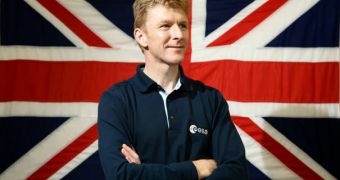Over the following 12 weeks, representatives of academies, universities and industrialists in the United Kingdom will meet and discuss whether a national space agency is necessary for the country at this point, or if the British National Space Center should be left in charge of robotic explorations. The Center has a known anti-human spaceflight policy, and does not contribute to the International Space Station (ISS). With the selection of Major Tim Peake, a former helicopter pilot, as the country's first astronaut to be recruited by the European Space Agency, the UK is beginning to play a more important role in the industry. This has led Science Minister Lord Drayson to call for the meeting.
“Both in terms of raising the profile of space, which is a fantastic asset in the UK, and in terms of organizing ourselves more efficiently, I think that an agency is the way to go,” he explained in an interview with the BBC News. At this point, all space-related programs the country is involved in are run by a conglomerate of departments in the government, working together with various research councils and private investors, but the funding for these efforts is not consolidated, and all projects are subjected to unnecessary risks, analysts believe.
Currently, the BNSC only facilitates players in the industry to meet and decide on future projects, but has no strong voice in determining the course of these projects, or their funding. Essentially, the country's participation in various European endeavors, or in its own projects, is entirely decided by those who participate in them directly, with no consolidated management of funding. This type of approach contrasts with that of countries such as Italy, France and Germany, as each of them has its own space agency.
But the minister said that the main drawback of the current state of affairs was the fact that the agencies, councils and investors involved in space initiatives at the moment were unable to adopt coherent positions on complex programs when this was required of them. As an example, Lord Drayson cited the instance in which the UK lost the chance to participate in the ESA-European Commission collaborations, whose goal was to create a vast, space-based, Earth-observation network.

 14 DAY TRIAL //
14 DAY TRIAL //